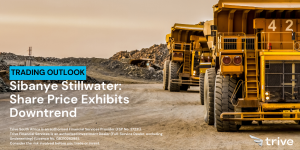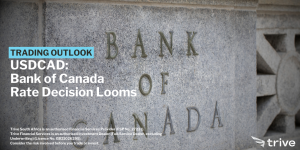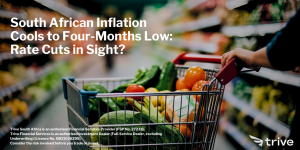
Fortress Real Estate Investments (JSE: FFB) has emerged as a dominant force in the real estate sector, with its share price skyrocketing to a five-year high, marking a staggering 129% year-to-date growth. This remarkable share price performance has propelled Fortress to the top spot on the Johannesburg Stock Exchange, attracting investors far and wide.
The surge in Fortress’ share price is not arbitrary; it stems from a blend of internal operational excellence and favourable external factors. Moody’s recent revision of Fortress’ rating outlook from negative to stable in February 2024 further underscores the company’s resilience and potential for sustained growth.
Amidst this meteoric rise, Fortress remains committed to enhancing shareholder value, as evidenced by the strategic decision to streamline its capital structure through the repurchase of all FFB shares. This move not only simplifies operations but also provides greater flexibility to focus on core logistics and retail portfolios across South Africa and Central and Eastern Europe.
The strong performance of Fortress’ direct portfolio, combined with the outstanding results achieved by its associate, NEPI Rockcastle (JSE: NRP), the largest listed property company on the JSE, where it holds a 24% stake, highlights the firm’s solid underlying fundamentals. Distributable earnings surged by 19.0% to R953 million, prompting the board to declare a dividend of 81.44 cents per FFB share, reflecting the company’s commitment to rewarding shareholders.
With a portfolio vacancy rate of just 3.7% and successful property disposals at a significant premium to valuations, Fortress Real Estate Investments stands poised for continued success and growth in the dynamic real estate market.
Technical
Fortress Real Estate Investments has witnessed a remarkable surge in its share price, reflecting a strong uptrend and trading above the 100-day moving average. The recent change in Moody’s outlook from negative to stable sparked a significant gap up in the share price, leading to a staggering 105% gain on February 21st, 2024.
This buying frenzy established the R7.53 per share level as a robust support level, propelling the share price past a five-year high to R17.20 per share. However, with overbought RSI conditions emerging at this level, selling pressure ensued, causing a slight downturn in price action.
Should selling pressures persist a retracement towards the 23.60% Fibonacci Retracement level, aligning with the lowest price after the gap up, could be likely. Conversely, the R17.20 per share level may serve as a point of interest to the upside, reflecting ongoing bullish sentiment and investor optimism in the company’s prospects.

Summary
Fortress Real Estate Investments stands at the pinnacle of the JSE’s real estate sector, boasting a remarkable 129% year-to-date share price surge. With solid fundamentals and strategic capital structure enhancements, it remains primed for continued success, backed by strong technical indicators.
Sources: Fortress Real Estate Investments, MoneyWeb, Business Live, eProperty News, TradingView
Piece Written By Nkosilathi Dube, Trive Financial Market Analyst
Disclaimer: Trive South Africa (Pty) Ltd (hereinafter referred to as “Trive SA”), with registration number 2005/011130/07, is an authorised Financial Services Provider in terms of the Financial Advisory and Intermediary Services Act, 37 of 2002. Trive SA is authorised and regulated by the South African Financial Sector Conduct Authority (FSCA) and holds FSP number 27231. Trive Financial Services Ltd (hereinafter referred to as “Trive MU”) holds an Investment Dealer (Full-Service Dealer, excluding Underwriting) Licence with licence number GB21026295 pursuant to section 29 of the Securities Act 2005, Rule 4 of the Securities Rules 2007, and the Financial Services Rules 2008. Trive MU is authorized and regulated by the Mauritius Financial Services Commission (FSC) and holds Global Business Licence number GB21026295 under Section 72(6) of the Financial Services Act. Trive SA and Trive MU are collectively known and referred to as “Trive Africa”.
Market and economic conditions are subject to sudden change which may have a material impact on the outcome of financial instruments and may not be suitable for all investors. Trive Africa and its employees assume no liability for any loss or damage (direct, indirect, consequential, or inconsequential) that may be suffered. Please consider the risks involved before you trade or invest. All trades on the Trive Africa platform are subject to the legal terms and conditions to which you agree to be bound. Brand Logos are owned by the respective companies and not by Trive Africa. The use of a company’s brand logo does not represent an endorsement of Trive Africa by the company, nor an endorsement of the company by Trive Africa, nor does it necessarily imply any contractual relationship. Images are for illustrative purposes only and past performance is not necessarily an indication of future performance. No services are offered to stateless persons, persons under the age of 18 years, persons and/or residents of sanctioned countries or any other jurisdiction where the distribution of leveraged instruments is prohibited, and citizens of any state or country where it may be against the law of that country to trade with a South African and/or Mauritius based company and/or where the services are not made available by Trive Africa to hold an account with us. In any case, above all, it is your responsibility to avoid contravening any legislation in the country from where you are at the time.
CFDs and other margin products are complex instruments and come with a high risk of losing money rapidly due to leverage. You should consider whether you understand how these products work and whether you can afford to take the high risk of losing your money. Professional clients can lose more than they deposit. See our full Risk Disclosure and Terms of Business for further details. Some or all of the services and products are not offered to citizens or residents of certain jurisdictions where international sanctions or local regulatory requirements restrict or prohibit them.




